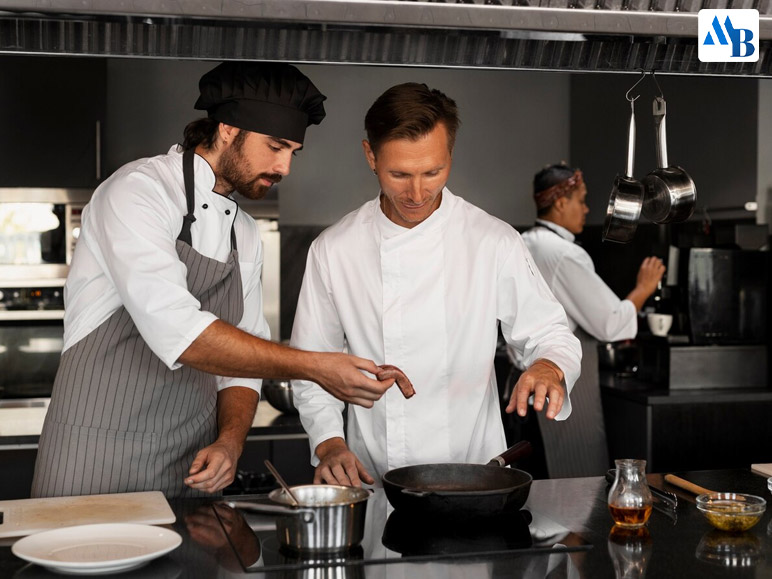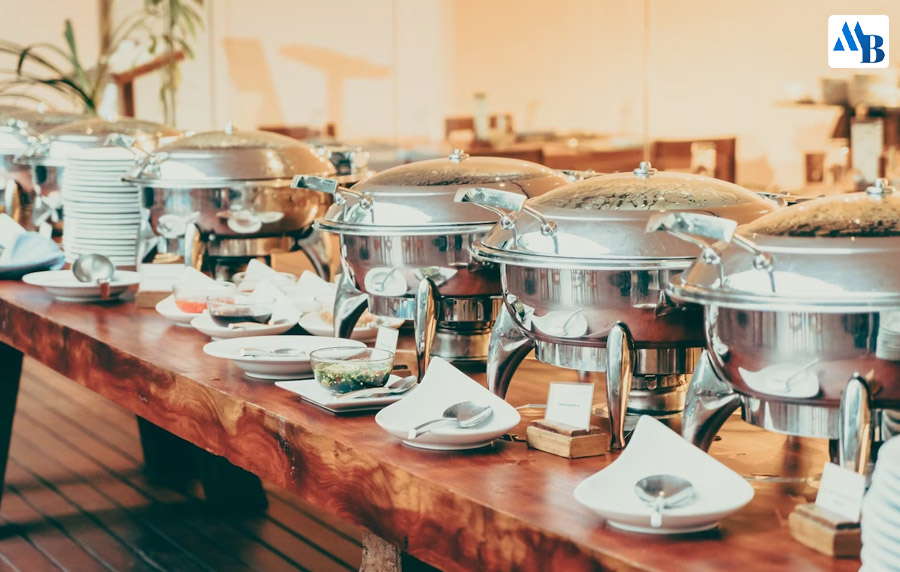When beginning the choice of establishing a food catering business, one is met with a huge challenge. The market’s vast expanse, estimated between 15,000 and 20,000 crores, along with a projected annual growth rate of 25–30%, necessitates careful consideration.
To carve out a distinctive niche in this dynamic industry, it is imperative to meticulously assess the scale of the venture and discern the target demographic while judiciously allocating capital resources.
Before starting to get into the dining business, it is of crucial value to have a deep understanding of the fundamental essentials, leaving no room for accidental oversight or errors.
Step By Step Guide To Start The Food Catering Business
Presented below is an expertly crafted plan to guide you toward the start of your very own food catering business.
Develop A Business Blue Print

Elaborate a comprehensive business blueprint, accounting for space availability, leasing arrangements, and storage prerequisites. Define your culinary specialization through feedback, and assessments.
Always exploration of options such as banquet lunch boxes, contractual catering services, and bespoke chef offerings, thereby broadening your clientele and securing pre-orders.
The selection of a kitchen area and the intricacies of leasing arrangements are contingent upon the magnitude of your catering venture. Smaller orders may necessitate 70–80 square feet, while larger orders may require up to 100 square feet. Standard rental costs typically range from Rs. 8,000 to Rs. 10,000.
Arrange The Financial Sources

Financial sources for a food service business in India encompass investments, personal funds, and bank loans. A budget of Rs. 20 lakhs encompasses operational expenses, kitchen rental, transportation, licenses, and permits.
With the capital reservoir established, it is time to invest in pivotal kitchen equipment, including fryers, refrigeration units, sinks, and preparation tables. Supplementary items may encompass cooking ovens, serving implements, a coffee or beverage station, and waste receptacles.
Kitchen Management

Diversify your procurement avenues to encompass local agrarians, wholesale consortia, and larger supply entities. Expanding your network of suppliers and vendors ensures cost-efficiency, freshness, and synergistic opportunities within the market.
Restaurant management involves menu engineering, cost control, and strategic pricing. A proficient team, including chefs, seasoned cooks, and delivery personnel, is essential for a successful establishment.
Marketing strategies, such as word-of-mouth referrals and social media, are crucial for customer loyalty. Automation and catering software can revolutionize operations, while attention to detail in order management is vital for inventory management and reducing constant adjustments.
In Summation
Embarking on a culinary venture demands more than culinary proficiency alone. Adhering to this comprehensive checklist will pave the way for success in the dynamic domain of Indian culinary entrepreneurship. This roadmap, characterized by its myriad intricacies, shall serve as an unwavering guide in the journey of establishing a flourishing food catering enterprise amidst India’s bustling culinary landscape.
Have A Look :-

